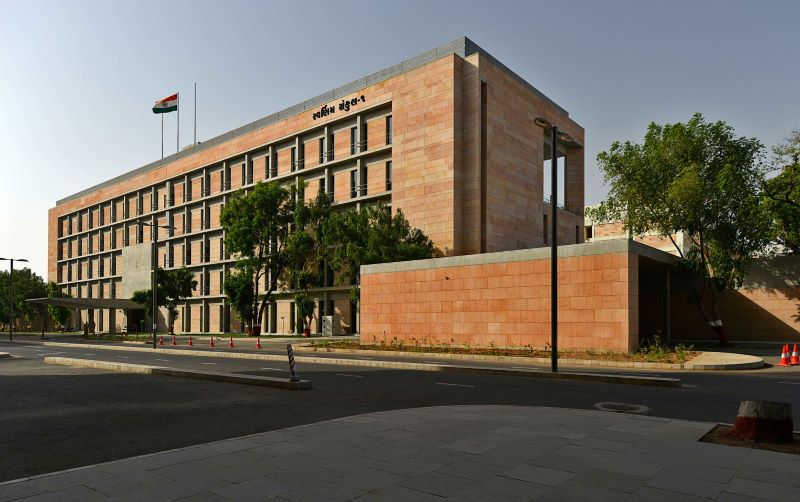Change in Govt Offices Timings among 10 Key Suggestions made by Gujarat Administrative Reforms Commission in its 2nd Report
April 25, 2025
Gandhinagar: Gujarat Administrative Reforms Commission (GARC) has in its second recommendation report handed over to the State Chief Minister has made 10 citizen-centric recommendations have been made, mainly with the aim of ‘Government at Your Door Step’ using digital technology.
The main topics covered in this second recommendation report of GARC are as follows.
(1) Creating user-friendly government websites for a pleasant citizen experience:
To ensure the quality, accessibility and security of government websites and applications, GARC has asked to assess all government websites by August 2025 and comply with the Guidelines for Websites and Applications of the Government of India (GIGW 3.0).
(2) Making the Citizen Charter effective:
A robust system built on the Citizen Charter will be developed for all citizen service delivery departments with complete details about the services and the time frame for providing those services, grievance redressal mechanisms and accountability mechanisms with a citizen first approach.
(3) Making government service delivery portals citizen-friendly:
It is recommended to create a single sign-on for all government services so that citizens can avail the benefits of any government scheme or programme from a single place by ensuring efficient interoperability. Moreover, citizens will be exempted from the process of entering the same demographic and identity information separately to avail various benefits.
(4) Establishing a system for verification of government certificates through technology:
Keeping in mind the government’s approach of transparency and accountability, the government will develop a tech-enabled QR-based mechanism to verify the authenticity of official certificates, licenses, approvals and other documents issued by the government.
(5) Making the grievance redressal platform integrated, citizen-centric and comprehensive:
The government will integrate various grievance redressal mechanisms by making the existing SWAGAT platform more comprehensive. This integrated platform will provide multiple channels for citizens to register their grievances. For example, email, WhatsApp, phone calls, online portals, etc.
(6) Strengthening institutional knowledge through effective knowledge management:
The government will develop a ‘Knowledge Transfer Protocol’ according to which all employees (whether transferring or retiring) will have to submit a Knowledge Transfer document to the incoming employee so that institutional knowledge can be further strengthened. In addition, government departments and offices will have to develop multimedia content on the theme of “Know Your Department” regarding the work done by their office so that it can help citizens understand government work.
(7) Vehicle Disposal Protocol for Government Vehicles:
The government will formulate a vehicle disposal protocol for the disposal of old vehicles used by government departments and it has also been recommended to further simplify the existing system for disposal of unusable vehicles.
(8) Protocol for disposal of unused furniture for all public offices:
The government will develop a furniture disposal protocol in all public offices within the next six months and the report also suggests disposal of unused furniture accordingly.
(9) Office timings for offices other than educational institutions to be from 9:30 AM to 5:10 PM, so that productivity can be increased through effective workday management:
In order to increase efficiency and keep in mind the work-life balance approach, the report has recommended keeping the official working timings of all government offices and institutions, including the field offices of the government, from 09:30 AM to 05:10 PM.
(10) Effective use of social media by the government:
The government will use official social media accounts to post daily activities of the government as well as various events at the local level.
Recent Stories
- ED searches in Ahmedabad and Junagadh in PMLA case
- Prime Minister Narendra Modi on a Two-Day Visit to Gujarat on 26–27 May
- ED conducts PMLA searches in Ahmedabad, Surat, Andhra Pradesh
- Traffic restrictions announced in Ahmedabad for PM Modi’s roadshow on May 26
- GST dept cracks down on manpower service providers in Gujarat; ₹15 crore tax evasion uncovered
- Ahmedabad gets another Vande Bharat Express train to Saurashtra; here is the tentative timetable
- PM Modi to inaugurate/lay foundation stone for ₹53,000 crore projects from Bhuj on May 26
